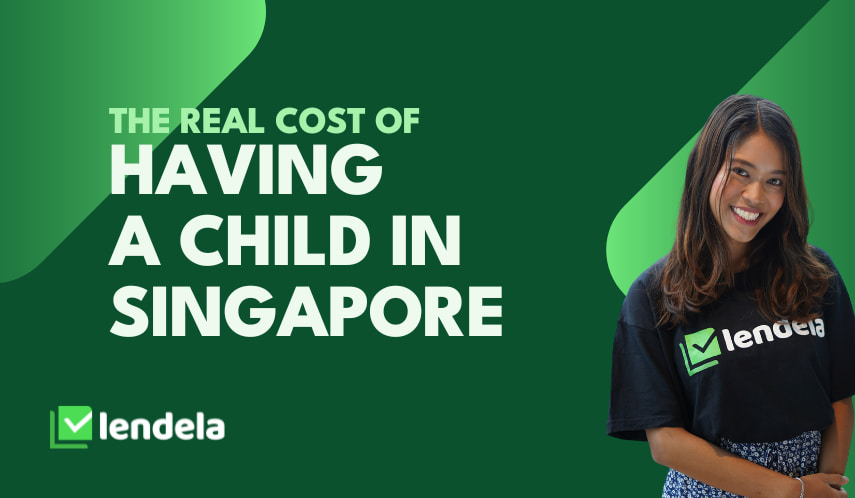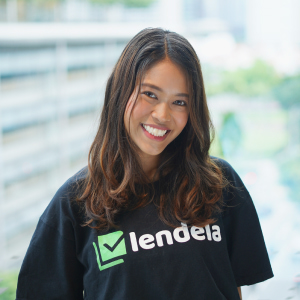Perhaps congratulations are in order, or you may be exploring the possibility of welcoming a child in your life. Parenthood is an incredible journey, but it’s no secret that raising a child in Singapore comes with significant financial commitment. According to The Straits Times, raising a child from birth to university age can range anywhere from $200,000 to $1 million, depending on choices around schooling, healthcare, and lifestyle. However, these numbers are more like a rough guide, as actual costs will vary depending on individual circumstances and choices.
In this article, we’ll look at the immediate costs in the early years, available government support schemes, and the importance of budgeting to make this journey smoother.
1. Maternity and delivery costs
The financial journey begins with maternity and delivery, where costs can vary significantly based on your healthcare preferences.
Public Hospital (Subsidised): A standard delivery in a government-subsidised hospital, such as KK Women’s and Children’s Hospital, may range from $1,000 to $3,000. Cesarean deliveries cost a bit more, but government subsidies based on citizenship and income can help reduce the bill further.
Private Hospital: Private hospitals come with a higher price tag, usually around $6,000 to over $10,000, depending on the hospital and type of delivery. Insurance may cover some expenses here, but it’s essential to check the specifics with your provider.
For many, the decision to go public or private depends on the comfort and choice of your gynecologist, and where they are qualified to perform the delivery.
Overview of private hospital maternity packages in Singapore
Private Hospital | Maternity Packages |
Gleneagles Hospital | Starting from $5,601 |
Mount Alvernia Hospital | Starting from $4,152 |
Mount Elizabeth Hospital | Starting from $6,309 |
Parkway East Hospital | Starting from $5,186 |
Raffles Hospital | Starting from $4,142 |
Thomson Medical Centre | Starting from $4,986 |
Aside from delivery costs, some families choose to book confinement services to assist the mother’s recovery and the transition to parenthood. Confinement services in Singapore range from $3,000 to as high as $15,000 in a confinement centre.
To help offset these initial expenses, parents can benefit from the Baby Bonus Scheme and MediSave Maternity Package. The Baby Bonus provides a cash gift of up to $10,000 and a Child Development Account (CDA) with government matching contributions between $3,000 to $15,000 based on the number of children. Learn more about the Baby Bonus and CDA Scheme here.
2. Essential Baby Items: Strollers, Car Seats, and More
As you await your child’s arrival, there are several key items you will need to consider purchasing such as strollers, cots, car seats, rockers and baby chairs. The prices vary largely based on brand and features, and it’s important to assess your lifestyle needs to decide which models will best suit your family’s needs. Some examples to inform your decision are:
If you have your own car, investing in a good, sturdy car seat will be better than a portable car seat
How often you intend to travel internationally will determine if a cabin stroller is a better option
If you expect to carry your baby on the go often, a baby carrier is often a good option
Get a convertible cot if you’d like your cot to grow with your child into a toddler bed
For your budget planning, here are a list of starting prices to expect when purchasing these items for your child:
Items | Minimum Budget |
Stroller | From $350 |
Car seat | From $300 |
Cot | From $200 |
Travel cot | From $90 |
Baby chair | From $150 |
Rocker | From $140 |
Baby carrier | From $100 |
Changing unit | From $150 |
Breast pump (hospital grade) | From $350 |
The total cost for these essentials can add up quickly, but there are ways to minimise expenses. You can consider secondhand on platforms like Carousell, or tapping on your personal network of friends and family who might have pre-loved items for their outgrown children. This is both budget-friendly and eco-conscious. Additionally, it’s worth spreading out purchases as some items, like baby chairs, may only be needed several months in.
3. Daily expenses in the early years
Besides the big ticket costs, the more regular expenses in the first years of your child’s life can add up to an additional recurring expenditure to account for. While the specifics may vary, here is a budgeting guide towards these daily expenses to consider:
Milk bottles: A set of quality milk bottles can cost between $15 to $50 per bottle, depending on the brand and material (e.g., BPA-free plastic, glass). Parents often purchase multiple bottles for convenience, leading to an initial cost of approximately $60 to $200.
Formula milk: Formula milk is one of the highest ongoing expenses for young children. A 900g tin of formula milk, which typically lasts one week for a baby, costs around $40 to $60, depending on the brand and type (standard, organic, or special formulations for allergies). Over a year, formula expenses alone can amount to $2,000 to $3,000. This cost can be much lower if your child is being breastfed.
Diapers: Diaper expenses also add up significantly. Babies use about 6 to 10 diapers daily, especially in their first few months. A pack of disposable diapers costs around $15 to $25, depending on the brand and quantity, with monthly diaper expenses averaging $50 to $100. Some parents might switch to reusable cloth diapers to reduce costs, although this requires additional laundering
Baby wipes and toiletries
Babies require gentle skincare products like wipes, lotions, shampoos, and diaper rash creams. Baby wipes alone can cost around $15 to $25 monthly, depending on the brand and frequency of use. Add in other toiletries, and monthly costs can reach around $30 to $50.
4. Childcare and preschool costs
For working parents, childcare is a necessity and can be one of the highest ongoing expenses. Whether you are a single or dual-income household, childcare is one of the highest costs parents will face, and as the child grows, education becomes a significant expense as well.
Infant Care Centres can start taking in babies from as young as 2 months old, but given the high adult to child ratio, it is also one of the most expensive childcare costs you will face. In addition to that, the demand for Infant Care services in Singapore is high and many centres have waitlists, so don’t be surprised to see a waitlist as there are parents registering their child for infant care before they are even born.
Although infant care can be subsidised, net costs range from $700 (subsidised) to over $2,000 for private centers. For working mothers, you can expect $600 in subsidy, and other additional subsidies based on household income. Always confirm with the centre if they are ECDA registered and check which government subsidies you qualify for.
As your child gets older, the good news is that childcare costs tend to also be lower as the adult-to-child ratio drops, usually starting from Playgroup at 18 months. When this happens, you can expect most pre-school fees to range from $700 to $1,500 a month.
While absolute school fees are a huge factor when choosing child care options for the first few years of your child’s life, remember to also factor in convenience and alternative childcare options when making a decision. Children do fall sick quite easily so you might want to pick a school that is accessible to your workplace or alternative caretakers such as the grandparents.
5. Healthcare costs
Routine health check-ups and vaccinations are essential for growing children, with government subsidies available at polyclinics for vaccinations on the National Immunisation Schedule. Private pediatrician visits may cost $100 to $200 per consultation.
It’s wise to set aside a budget for healthcare costs beyond vaccinations, as unexpected medical expenses are common. Additionally, consider health insurance plans for children to protect against unforeseen medical costs, which can provide peace of mind and help manage your family’s healthcare budget.
Budgeting for parenthood: Tailoring financial plans to your family
In Singapore, raising a child comes with many anticipated—and some unanticipated—costs, and while estimates can provide a guideline, each family’s financial journey is unique. Customising a budget based on your specific needs, lifestyle, and values is essential, as is understanding the full scope of financing options available.
Plan your family’s finances confidently with Lendela’s loan matching
If you’re considering a loan to support some of these expenses, ensure it’s one you can comfortably afford with a free loan matching platform like Lendela.
Parenthood is filled with unforgettable moments, and thoughtful budgeting can make those moments less stressful and more enjoyable. Every family’s needs are different, so take the time to tailor your financial plan and choose the support and savings options that work best for your unique journey.
Key Takeaways
- Maternity, delivery, and confinement services are substantial initial expenses. Government schemes, such as the Baby Bonus and MediSave Maternity Package, provide financial support to help ease these costs.
- Key items like strollers, car seats, and cots further add to the initial budget. Parents can reduce expenses by purchasing secondhand items or spacing out their purchases.
- Creating a financial plan tailored to the family’s unique needs and values can help manage the costs of parenthood, making the journey less stressful and more enjoyable.


